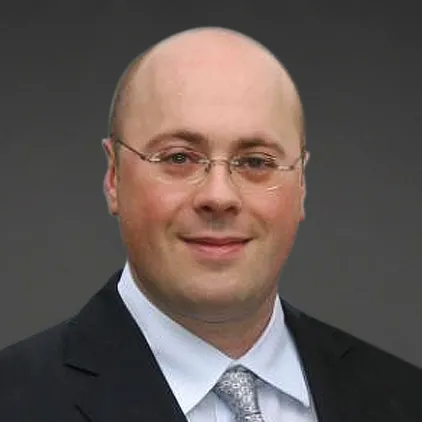

Prof. Dr. Manuel Oriol
With a Ph.D. in Dynamic Software Updates from the University of Geneva, Manuel Oriol brings a wealth of software engineering and education expertise. His extensive research in software testing, component infrastructure, and real-time systems has garnered recognition in the field. Previously holding academic positions at renowned institutions such as the University of York, Manuel Oriol also contributed significantly to ABB, where he focused on IoT systems and spearheaded special projects. With a unique blend of academic research and practical product development experience, Manuel Oriol is vital in advancing software engineering principles at Constructor Institute of Technology.
The chair of Quantum Software Engineering research agenda focuses on three areas: software engineering for embedded systems, software engineering for and with artificial intelligence and analytics, and software engineering for and with quantum computing.
The Chair of Quantum Software Engineering focuses on building a complete body of software engineering research applied to these fields because they typically lack the tools and methodology to create systems for the next ten years of development. Current research focuses on:
- Software engineering of embedded systems
- Software engineering of real-time systems
- Software engineering of specific technologies such as AI-based software, cybersecurity for IoT systems, analytics-aware systems, and quantum computing
- Various combinations of such topics, including:
- Software engineering of AI-based applications embedded in real-time systems
- Software engineering and cybersecurity of quantum computing (potentially for real-time systems)
- Improving Counterexample Quality from Failed Program Verification
Li Huang, Bertrand Meyer, Manuel Oriol.
CoRRabs/2208.10492 (2022) - Modern Software Architecture for Embedded Real-Time Devices: High Value, Little Overhead
Aurelien Monot, Manuel Oriol, Camille Schneider, Michael Wahler.
In 13th Working IEEE/IFIP Conference on Software Architecture (WICSA), 2016. - Class Schema Evolution for Persistent Object-Oriented Software: Model, Empirical Study, and Automated Support
M. Piccioni, M. Oriol, B. Meyer.
In IEEE Transaction on Software Engineering (TSE) 39(2): 184-196 (2013), 2013. - Random Testing. Evaluation of a Law Describing the Number of Faults Found.
M. Oriol
In International Conference on Software Testing (ICST 2012), 2012. - Practical Dynamic Software Updating for C.
I. Neamtiu, M. Hicks, G. Stoyle, M. Oriol
In Proceedings of the ACM Conference on Programming Language Design and Implementation (PLDI 2006), 2006.
2022 theses
- Highly Accurate Genome Classification using Deep Neural Network and Chaos Game Representation.
Research thesis.
Sara Omar Soliman Al Safoury. - Automated Random Testing for Adaptive Systems.
Research thesis.
Ilir Nuredini. - Automated Generation of Test Oracle for Adaptive Systems.
Research thesis.
Fatmir Nuredini. - Equivalence analysis of quantum programming simulation using concurrent threads.
Research thesis.
Ekaterina Petrovskaya. - User flow optimisation at Chatroulette.
Industry thesis.
Ivan Glushenkov. - Development of CI/CD system for autonomous driving scenarios.
Industry thesis.
Zekarias Taye Hirpo. - Automatic Quiz Generation System.
Industry thesis.
Agbeyeye K. Ledi. - Digitalization and Automization of Manual Processes in Market.
Industry thesis.
Amr Mohamed Shawky Mohamed. - Chatroulette Gamification of Website and Introduction of Reputation System.
Industry thesis.
Temiloluwa Philip Ojo. - Automated essay scoring system.
Industry thesis.
Ahmed Zaid. - Product Design and Startup Development of Mobile Micro-learning Platform “StudyGram”.
Startup thesis.
Yuriy Dyuster. - Marketing research, business model and prototype development for new application for networking and networks’ maintenance.
Startup thesis.
Anastasiia Fokina. - SpotLot.
Startup thesis.
Iuliia Kotovich. - StudyGram: EdTech startup implementation.
Startup thesis.
Michael Martinson. - SpotLot.
Startup thesis.
Yuva Phalle.